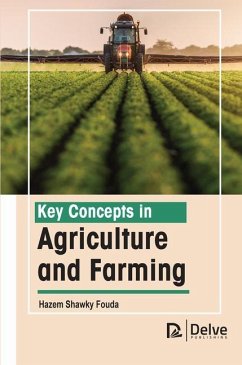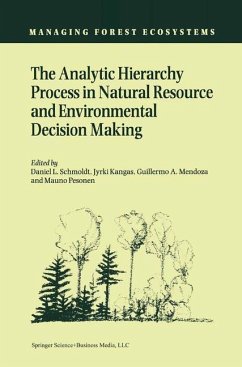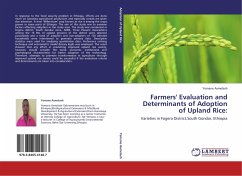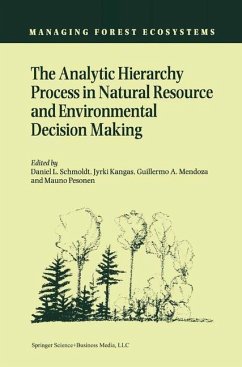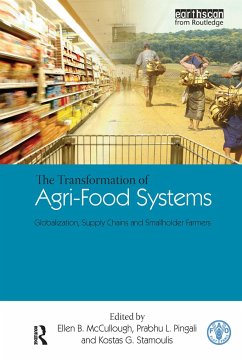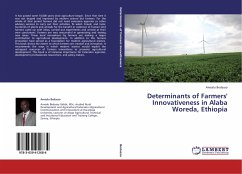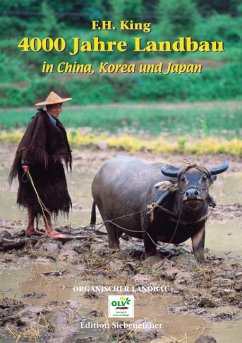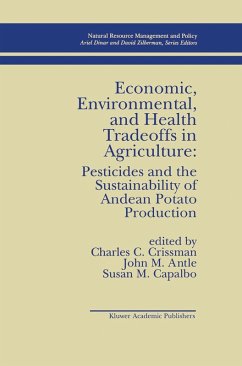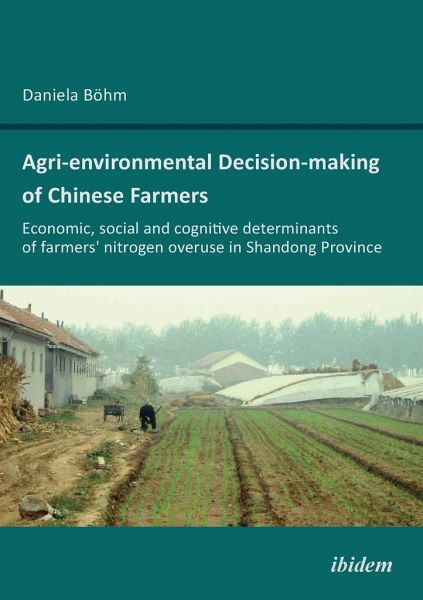
Agri-environmental Decision-making of Chinese Farmers. Economic, social and cognitive determinants of farmers' nitrogen overuse in Shandong Province
Versandkostenfrei!
Versandfertig in 6-10 Tagen
39,90 €
inkl. MwSt.

PAYBACK Punkte
0 °P sammeln!
Over the past 30 years, China s intensive agricultural production and nitrogen overuse has led to significant environmental problems. Moreover, farmers face uncertainty regarding better technologies since they are risk-averse due to the experiences they have made in the past. Thus, the challenge to overcome is to implement well-grounded approaches that accomplish effective agricultural training, encouraging farmers to adopt optimised practices. Since, in addition to economic concerns, successful local policy implementation is closely related to an individual s social and cognitive preferences,...
Over the past 30 years, China s intensive agricultural production and nitrogen overuse has led to significant environmental problems. Moreover, farmers face uncertainty regarding better technologies since they are risk-averse due to the experiences they have made in the past. Thus, the challenge to overcome is to implement well-grounded approaches that accomplish effective agricultural training, encouraging farmers to adopt optimised practices.
Since, in addition to economic concerns, successful local policy implementation is closely related to an individual s social and cognitive preferences, the approach of this study was to link the socio-psychological theory to the economic model of individual behaviour. Tailored to the Chinese context, in particular farmers agri-environmental attitudes, their fundamental value positions and personal gu nxi relationships are focussed in order to show how the mental decision-process is related to the cultural, institutional and historical context.
Empirical evidence was gained by a comprehensive survey in Shandong Province. The results provide an overview of the economic, environmental and structural situation of Chinese agriculture. Besides excessive nitrogen overuse and low production efficiencies, decreasing profitability reveals the poor environmental and economic situation of small-scale farms. As a result of increasing opportunity costs for labour, in particular of young family members, farms diversify their income strategies.
Overall, Chinese agriculture lacks better structural conditions and future perspectives as well as the support of effective extension systems with well-educated trainees. Hence, policy recommendations are proposed in the fields of education, political incentives and institutional reforms, challenging a new agricultural paradigm for China.
Since, in addition to economic concerns, successful local policy implementation is closely related to an individual s social and cognitive preferences, the approach of this study was to link the socio-psychological theory to the economic model of individual behaviour. Tailored to the Chinese context, in particular farmers agri-environmental attitudes, their fundamental value positions and personal gu nxi relationships are focussed in order to show how the mental decision-process is related to the cultural, institutional and historical context.
Empirical evidence was gained by a comprehensive survey in Shandong Province. The results provide an overview of the economic, environmental and structural situation of Chinese agriculture. Besides excessive nitrogen overuse and low production efficiencies, decreasing profitability reveals the poor environmental and economic situation of small-scale farms. As a result of increasing opportunity costs for labour, in particular of young family members, farms diversify their income strategies.
Overall, Chinese agriculture lacks better structural conditions and future perspectives as well as the support of effective extension systems with well-educated trainees. Hence, policy recommendations are proposed in the fields of education, political incentives and institutional reforms, challenging a new agricultural paradigm for China.




